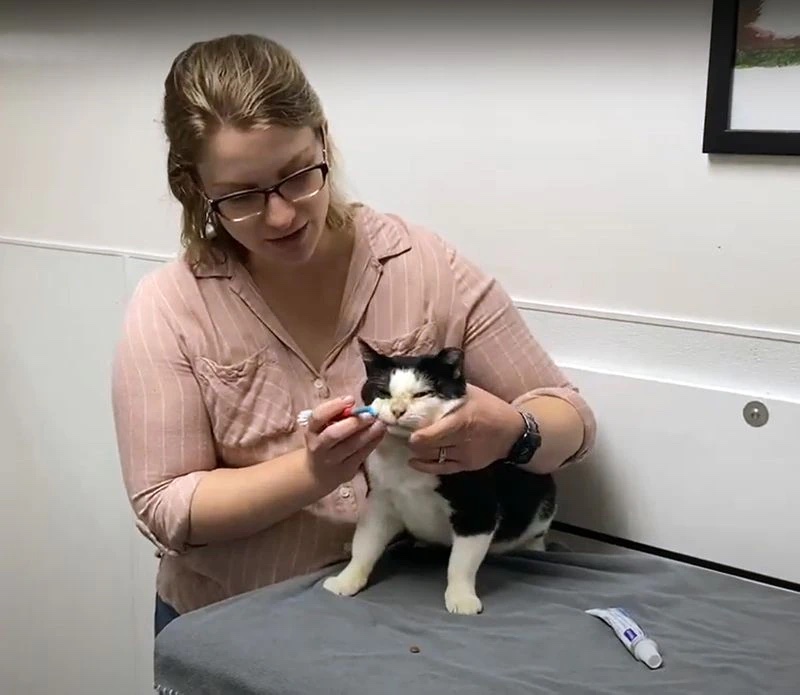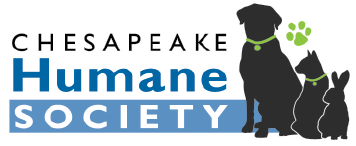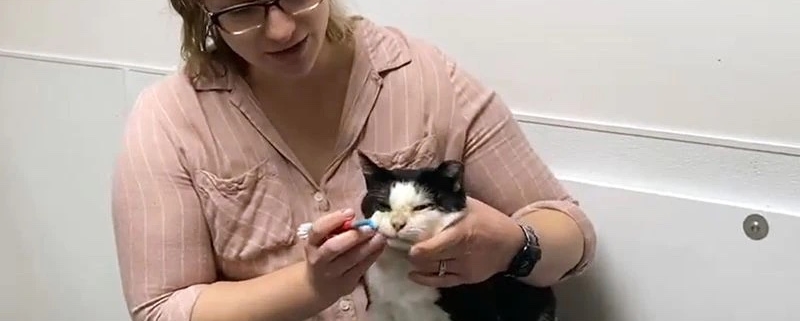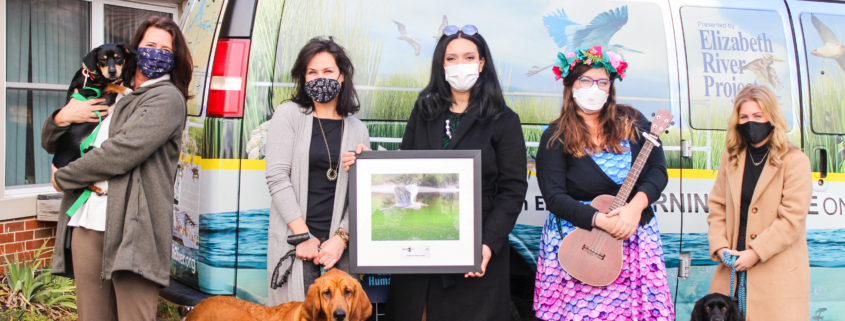Pet Dental Health is the focus for February
Periodontal disease is prevalent in pets, even though it’s often preventable. We can see tartar buildup on the tooth; however, often the worst damage is going on below the gumline. We cannot see the health of the tooth root without X-rays, which is why it’s important to have your veterinarian regularly check your pet’s teeth and get regular dental cleanings.
According to the American Veterinary Medical Association, 80% of dogs and 70% of cats have some form of periodontal disease by age 3. Periodontal disease doesn’t just affect your pet’s teeth; it can cause health problems with their kidney, liver, and heart.
Signs of a severe dental problem include bad breath, tartar buildup, abnormal chewing or drooling, reduced appetite, pain or bleeding from the mouth, change in behavior and weight loss. If you notice any of these symptoms, you should schedule an appointment with your veterinarian.
The most effective way to prevent or reduce periodontal disease is daily brushing. While daily brushing is ideal, it may not be realistic, so even brushing a few times a week will help keep your pet’s oral health in good condition.

Dr. Katelyn Bagg demonstrates how to brush your cat’s teeth. She is using a pet-safe toothpaste in chicken flavor. Courtesy of Emily Friedland
In addition to brushing, your veterinarian can recommend other dental products such as dental-specific diets, treats, chew toys, or water additives. Taking these preventive measures may reduce the number of professional dental cleanings your pet needs throughout their life.
Human toothpaste is toxic to pets because of the amount of fluoride. Pet-safe toothpaste comes in a variety of flavors that are enticing to your pet and help make the brushing process easier. You can get pet-safe toothpaste through your veterinarian or local pet store. There are a variety of toothbrush options available as well. Similar to nail trims and ear cleaning, it helps to make teeth brushing a positive experience, so give lots of praise and treats and ease into the process so you don’t overwhelm your pet.
Veterinarians perform dental cleanings while your pet is under anesthesia. It should include X-rays, scaling and polishing of the teeth. Tooth extraction may be necessary if X-rays show that the tooth root is rotting or damaged. Some pet owners are averse to putting their pet under anesthesia for a dental cleaning; however, it is the only way your pet can receive a thorough cleaning and is necessary if any extractions are needed. The process is safer and less stressful for your pet and veterinary staff. Going under anesthesia always has risks associated with it. Still, with technology and monitoring, it is safer than ever, and the oral health benefits far outweigh the risks.
Most of what I’ve talked about so far relates to oral health for cats and dogs. But let’s not forget about good oral health for our small animals. Rabbits, guinea pigs, hamsters, gerbils, rats, mice and chinchillas have teeth that continuously grow, so they must be worn down or trimmed to prevent overgrowth.
Brushing isn’t necessary for most small animal species; however, a proper diet is essential. For example, rabbits and guinea pigs need a high-fiber diet of hay and leafy greens to promote chewing and wear of their teeth and access to sunlight, which helps them produce vitamin D for strong bones and teeth. Small animals must have access to chew toys to help wear down their teeth and provide enrichment.
The root of what I’m saying here is don’t put off dental care for your pet. We see pets all the time coming into our clinic with severe dental disease and multiple extractions required because their owners have delayed care.
Yes, dental cleanings are expensive, but delaying proper care almost always leads to an urgent situation that is far more painful for your pet and more costly for you.
Lacy Shirey is executive director of the Chesapeake Humane Society. She can be reached at director@chesapeakehumane.org.


